미디어 인싸잇
-
[미디어 이슈] 슈카월드 코스피 5000 발언... 미디어의 ‘조롱 프레임’ 논란

슈카월드 전석재 씨 “공신력 있는 신문에 기사화되니 참담” “전체 보면... 조롱 아니라는 것 쉽게 알 수 있어”
인싸잇=강인준 기자 ㅣ 코스피가 5000선을 돌파했다. 곳곳에서 “주식으로 돈 많이 벌게 돼 기분 좋다”라며 콧노래가 들리는 가운데, 언론 미디어와 여론의 지탄을 받는 한 사람이 있다. 바로 경제 유튜버 ‘슈카월드’다. 그가 과거 이재명 대통령의 대선 공약이기도 했던 코스피 5000에 대해 부정적으로 전망한 것을 두고 “예측이 빗나갔다”며 비난이 이어지고 있는 것이다. 특히 언론 미디어는 코스피 급등의 배경과 상승세 지속 여부 그리고 당사자의 해명에 대한 고려는 뒤로 한 채 ‘경제·투자 전문가’인 그의 과거 발언에만 주목해 “역풍” “굴욕” “성지순례” 등 비하와 조롱식의 표현을 내세우며 논란을 키우고 있다. 이번 논란은 슈카월드가 지난 27일 자신의 유튜브 채널에 「삼성전자 시총 1000조 돌파, 코스피 불꽃 상승」이라는 제목의 영상을 올리며 시작했다. 그는 여기서 “상상하지 못했던 코스피 5000에 도달했다. 믿기지 않는 상승“이라며 이번 코스피가 5000포인트를 돌파한 것에 대해 긍정적으로 평가했다. 그러자 지난 대선 당시 경제 유튜브 채널 <머니코믹스>에 그가 출연한 영상이 회자됐다. 당시 영상에서 슈카월드는 이 대통령의 대선 공약이기도 한
-
[인터뷰] “이게 어떻게 내란선동인가”... 전광훈 목사 내란선동 불송치 이끈 2명의 변호인
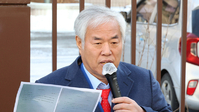
박준우·구주와 변호사 “전광훈 목사, 경찰·언론·정치꾼이 만든 ‘내란 프레임’ 피해자” “‘내란선동 프레임’ 씌워 구속하더니”... 警, 내란선동 혐의 결국 불송치 “전광훈 목사, 고령에 지병 심해... 도주 우려 없는데 구속” “처음부터 내란선동 혐의 증거 확보 못 해” “편파·확증편향 일삼는 언론 보도 행태... 증거 영상 제대로 보긴했는가” 지적
인싸잇=한민철 기자 | 지난 28일 경찰이 전광훈 사랑제일교회 목사의 내란선동 혐의에 대해 불송치 결정을 내렸다. 앞서 전광훈 목사는 지난해 1월 19일 탄핵정국 당시 발생한 서울서부지법 사태의 배후 의혹을 받으며, 내란선동 및 특수건조물침입교사, 집회 및 시위에 관한 법률 위반 등의 혐의로 지난 22일 구속됐다. 그동안 경찰 수사 과정에서 다수의 언론과 정치권은 전 목사를 ‘내란선동꾼’으로 묘사하며, 사실상 그가 내란선동에 깊숙이 관여됐다는 식으로 비난해왔다. 당연히 이는 전 목사의 구속에 상당한 영향을 미쳤다. 하지만 이제 와 피의자를 구속한 핵심 혐의를 제외한 채 나머지 일부 혐의만을 검찰에 넘기겠다는 것이다. 전 목사 측 법률대리인들은 이를 두고 “경찰이 아무리 수사해도 내란 선동 혐의점이 나오지 않았다는 걸 보여준 꼴”이라고 비판했다. 결국 그동안 무리한 ‘내란선동꾼’ 프레임을 씌워 내란선동이라는 엄청난 범죄로 몰아세웠다는 것이다. <인싸잇>은 지난 28일 오후 전 목사의 내란선동 혐의의 불송치를 이끈 법무법인 넥스트로의 박준우 변호사 그리고 법무법인 비트윈의 구주와 변호사를 만나, 전 목사에 대한 내란선동 혐의 불송치와 법원의 구속 결정
-
[미디어 이슈] 차은우 탈세 의혹에 대한 언론 미디어의 ‘낙인 찍기' 보도 행태

‘과세 전 적부심사' 결과 나오기 전 사실상 ‘탈세 낙인' 찍은 세무조사 보도, 정당한가
인싸잇=강인준기자 | 최근 가수 겸 배우 차은우를 둘러싼 ‘200억대 탈세 의혹’이 논란이 되고 있다. 각 언론 미디어는 이번 이슈의 핵심인 탈세 혐의를 의혹 단계를 넘어 사실상 확정적인 것인 마냥 보도를 쏟아내고 있다. 그러면서 광고·콘텐츠 시장에서 이른바 ‘차은우 지우기’에 나서고 있다. 당사자는 군 복무 중임에도 사과문을 올리고 대응에 나서고 있지만, 언론 미디어는 ‘차은우 지우기’를 제촉하듯 물어뜯기식 보도를 이어가고 있다. 과거 여러 스캔들을 일으킨 연예인들이 당해야만 했던 “사회적 제재가 절차를 앞지른다”는 보도 행태가 여전히 이뤄지고 있는 것이다. 차은우의 탈세 의혹에 대한 첫번째 보도는 국세청이 차은우에게 200억 원대 세금 추징을 통보했고, 당사자가 이에 불복해 관련 절차를 밟고 있다는 취지의 내용이었다. 그러면서 차은우 측은 “최종 확정 및 고지된 사안이 아니다”라며 적법 절차에 따라 소명하겠다는 입장을 내놨다. 문제는 그 다음 단계다. 이 첫번째 보도 직후 대부분의 언론 미디어가 ‘세금 추징’ 또는 ‘추징 통보에 대한 불복’이 아닌, ‘200억 탈세’에 초점을 맞춰 기사를 양산했다. 그중에는 ‘탈세 의혹’도 아닌 이미 탈세가 확정됐다고 단
경제·산업
-
[금주의 IT·게임 톡톡] “고맙다! ‘아이온2’” 엔씨소프트, ‘아이온2’ 개발 임원 대거 승진에 실적 개선 기대감↑

인싸잇=유승진 기자 | 2026년 1월의 마지막 주 국내 IT 및 게임 업계에서는 엔씨소프트의 새 인사 발표와 지난해 개선된 실적 발표 예상 등의 이슈가 주목받았다. SK텔레콤은 지난해 발생한 개인정보 유출 사고와 관련해 한국소비자원 소비자분쟁조정위원회의 조정안을 받아들이지 않으면서 향후 치열한 소송전을 예고했다. ‘아이온2’ 흥행 주역, 대거 임원 승진 지난 29일 엔씨소프트는 올해 첫 임원 인사를 단행, 이번 인사에서 ‘아이온 2’ 개발을 지휘한 백승욱 전무를 부사장으로 승진 임명했다. 그는 2024년 초 전무 승진 이후 2년 만에 부사장직에 오르게 됐다. ‘아이온 2’ 개발을 총괄한 김남준 PD, 소인섭 사업실장도 이번 인사에서 각각 상무에서 전무로 승진했다. 지난해 11월 출시한 다중접속역할수행게임(MMORPG) ‘아이온 2’는 이달 초까지 누적 매출 1000억 원을 넘기며 엔씨소프트의 실적 개선에 보탬이 됐다는 평가를 받는다. 한편, 엔씨소프트 경영지원 업무를 총괄해온 구현범 최고운영책임자(COO), ‘리니지’ 모바일 게임 시리즈 흥행을 이끈 이성구 최고사업책임자(CBO)는 각각 부사장에서 수석부사장으로 승진했다. 구현범 수석부사장은 인사담당 전무,
-
[금주의 금융 톡톡] 하나금융그룹, ‘4조 클럽’ 입성에 함영주 회장 사법리스크 해소까지

인싸잇=한민철 기자 | 2026년 1월 마지막 주는 하나금융그룹에 희소식이 가득했다. 지난해 연간 당기순이익이 4조 원을 넘겼고, 함영주 회장의 사법 리스크가 사실상 해소되며 임기를 무사히 마칠 수 있게 됐다. KB국민은행은 은행의 신용대출 채무조정 상품이 금융감독원으로부터 우수사례로 선정됐다. 하나금융 사상 첫 ‘4조 클럽’ 하나금융그룹이 지난해 연간 당기순이익 4조29억원을 달성하며 사상 첫 ‘4조 클럽’에 입성했다. 하나금융은 30일 2025년 4분기 실적발표를 통해 지난해 4분기 5694억 원을 포함해 연간 연결당기순이익 4조 29억 원을 달성했다고 밝혔다. 이는 전년 대비 2641억 원 7.1% 증가한 규모로 역대 최대 실적에 해당한다. 하나금융 이사회는 기말 현금배당을 주당 1366원으로 결의했다. 지난해 보통주 1주당 현금배당은 지난해 지급된 분기배당금 2739원을 포함한 총 4105원으로, 전년 대비 주당 505원(14%) 증가했다. 하나금융 관계자는 “지난해 1조 8179억 원의 역대 최대 규모의 주주환원으로 ‘코리아 프리미엄’ 선도에 앞장 서겠다”고 말했다. 함영주 회장, 사법 리스크 굴레 벗어 채용 비리 사건으로 재판받아 온 함영주 하나금
-
[금주의 건설 톡톡] 현대건설, ’원격제어 타워크레인’ 도입… 쌍용건설, 두바이 대형 건설 프로젝트 수주

인싸잇=윤승배 기자 | 2026년 1월 마지막 주 국내 건설업계는 현대건설의 ‘원격제어 타워크레인’의 국내 최초 도입이 눈길을 끌었다. 또 쌍용건설이 두바이 국영 부동산 개발 회사(WASL)로부터 대형 건설 프로젝트를 재차 수주하는 희소식을 전했다. 다만 포스코이앤씨는 현장점검에서 기준치 15배를 초과하는 오염물질을 방류한 사실이 발각되면서 어두운 한 주를 보냈다. 현대건설, ’원격제어 타워크레인’ 건설현장 국내 최초 도입 현대건설은 지난 29일 경기 과천시 주암동 ’디에이치 아델스타’ 현장에서 스마트 건설기술 시연회를 열고 ▲원격제어 타워크레인 ▲실내 점검 드론 ▲자재 운반 로봇 ▲자율주행 모바일 플랫폼 등 스마트 건설기술 시연했다. 현대건설에 따르면, 원격제어 타워크레인은 전방위 모니터링 카메라와 저지연 원격제어 기술을 결합한 시스템으로, 작업자가 고공·고위험 작업 구역에 직접 진입하지 않고 운전원이 지상 원격 조종실에서 장비를 운용하도록 설계됐다. 현대건설 관계자는 “국내 건설현장 최초의 원격조정 타워크레인 도입은 고위험 작업 환경에서의 안전 관리 강화와 작업 여건 개선을 위한 기술 도입 사례“라며 “디지털 기반 운영 방식을 주요 작업 영역으로 확대해
-
[금주의 식음료 톡톡] “술 안 마시는 시대”에 하이트진로 실적 부진... 오뚜기 ‘진짬뽕’, 짬봉라면 점유율 1위

인싸잇=윤승배 기자 | 2026년 1월 마지막 주 식음료 업계는 국내 주류 업계 1위 하이트진로의 지난해 주류시장 한파로 인한 부진한 실적 발표가 이슈가 됐다. 오뚜기는 자사 제품 ‘진짬뽕’이 2년 연속 짬뽕라면 시장 1위를 기록했다는 조사 결과를 공개했고, 농심은 출시 40주년을 맞아 신라면의 새로운 TV 광고를 선보였다. SPC삼립은 지난해 발생한 공장 노동자 사망 사고에 관해 경찰이 책임자에 대한 구속영장을 신청했지만, 검찰이 보완을 요구하는 이슈가 있었다. 하이트진로, 주류시장 한파에 매출·영업이익↓ 하이트진로가 지난해 주류시장 규모 축소 여파로 매출과 영업이익 모두 전년 대비 감소했다. 지난 28일 하이트진로는 지난해 연결 기준 매출 2조 4986억 원으로 전년 대비 3.9% 감소했다고 공시했다. 같은 기간 영업이익은 1721억 원으로 전년 대비 17.3% 줄었다. 하이트진로는 국내 소주·맥주 시장이 줄어든 규모에 비하면 매출 감소 폭이 최소화에 그쳤다고 분석했다. 하이트진로 관계자는 “전반적인 주류시장 소비 위축에도 매출 감소폭을 최소화했다”며 “올해는 다양한 시장 활성화 활동을 추진하고 해외시장 공략을 강화할 예정”이라고 밝혔다. 오뚜기 ‘진짬뽕
-
[단독] 삼성전자, 납품 자재 관리자에 27억 털려

삼성전자 지방 사업장 직원, 3년 넘게 27억 이상 납품 자재비 빼돌려 납품 자재 재고 파악 및 검수 업무 동시에 맡아 장기간 범행 시스템상 재고 수량 수동으로 변경 가능... 범행 피해 키워
인싸잇=한민철 편집국장 | 삼성전자 지방 사업장에 납품 자재 주문과 검수를 담당하던 전 직원이 27억 원이 이상의 납품 자재비를 협력사를 통해 빼돌린 것으로 나타났다. 삼성전자는 최초 범행 약 4년이 지나서야 이 사실을 알게 됐고, 해당 직원의 장기간 범행이 가능한 배경에는 자재 납품과 검수에 있어 사측의 허술한 시스템의 문제도 한몫했던 것으로 밝혀졌다. 30일 법조계에 따르면, 이날 법원은 특경법 위반(배임) 혐의로 기소된 삼성전자 전 직원 A씨에 징역 7년을 선고했다. A씨에 대한 검찰 공소사실에 따르면, 그는 지난해까지 삼성전자의 C&M(Compressor&Motor) 사업팀에 소속돼 지방 사업장에서 자재 발주 및 검수 등의 업무를 담당한 것으로 알려졌다. A씨는 협력업체에 필요한 자재를 주문하고 해당 자재가 입고되면 실제 받은 양과 전산상으로 주문한 양을 검수하는 업무를 함께했다. 이처럼 주문과 검수 업무를 동시에 맡으면서, 자재의 실제 주문량과 재고 수량을 전산상 수동으로 바꿔도 당장 확인할 수 없다는 걸 알게 됐다고 한다. 검찰은 A씨가 이를 악용해 삼성전자 사업장에 컴프레서 클러스터(Compressor Cluster) 자재를 납품해
-
[금주의 화장품·패션 톡톡] 한국콜마, 기술 탈취 소송 승소... LG생건, 화장품 부문 부진에 영업이익 급감

인싸잇=백소영 기자 | 2026년 1월 마지막 주 국내 화장품·패션 업계는 한국콜마의 기술 유출을 둘러싼 외국계 기업과의 6년간 법적 분쟁이 승소로 마무리됐다는 소식이 화제가 됐다. 아모레퍼시픽은 성균관대와 협력해 세계 최초로 화장막의 3차원 미세구조에 대한 비파괴 정량 분석에 성공했다. CJ올리브영은 서울 광화문에 ‘올리브베러 광화문점’을 오픈했다. 또 삼성물산 패션 부문은 지난해 4분기 실적이 개선됐다. 각사마다 좋은 뉴스로 1월을 마무리하는가 싶었지만, LG생활건강은 화장품 부문의 부진으로 지난해 영업이익이 60% 넘게 급감했다는 우울한 소식을 전했다. 한국콜마, 기술 유출 당사자에 승소... 소송비용 전액 받아내 지난 28일 한국콜마가 이탈리아 화장품 ODM 기업 인터코스의 한국법인 인터코스코리아와의 자외선 차단제 핵심 기술 유출 관련 법적 분쟁에서 최종 승소한 데 이어 법정 소송비용까지 회수한 것으로 나타났다. 구체적으로 한국콜마는 인터코스코리아와 자사 전 직원 A씨로부터 각각 1560만 원씩, 총 3120만 원을 받아냈다. 이는 소송 과정에서 한국콜마가 부담한 법정 소송비용 전액에 해당한다. 해당 사건은 한국콜마 전 직원 A씨와 B씨가 2018년
오피니언·칼럼
-

[법조인 문학관] 겨울엽서 57 - 주광일
겨울엽서 57 주광일 저 아래 꽁꽁 얼어붙은 도시의 소음이 들리는 둘레길을 걸으며, 당신을 생각했습니다. 60년이 넘는 세월을 함께 하고 이제는 할배인 나와 함께 늙어버린 당신을 위해 성모송을 읊었습니다. 내가 어디를 헤매더라도 결국은 당신이 나의 귀착점이기 때문입니다. 겨울나무 가지 끝에 핀 눈꽃이 겨울 햇살에 파르르 빛나며, 얼마남지 않은 세월을 아쉬워하는지 보일듯 말듯 희미하게 떨고 있었습니다. 2026.1.26. □ 주광일 1943년 인천광역시에서 태어나 경기고등학교와 1965년 서울대학교 법학과를 졸업하고, 1965년 제5회 사법시험 합격했다. 1979년 서울대학교 대학원에서 법학박사 학위를 취득했다. 2006년에는 미국 노스웨스턴대학교 로스쿨을 수료했다. 검사로 있으면서 면도날이라고 불릴 만큼 일처리가 매섭고 깔끔하며 잔일까지도 직접 챙겨 부하검사들이 부담스러워했다. 10.26 사건 직후 합동수사본부에 파견돼 김재규 수사를 맡았으나 "개혁의지가 없다"는 이유로 원대복귀되기도 했다. 인천지방검찰청 검사장으로 있을 때 자신이 직접 언론 브리핑을 했던 인천 북구청 세금 횡령 사건, 인천지방법원 집달관 비리 사건 등 대형 사건을 처리했다. 서울지방검찰청
-

[심규진 칼럼] 기득권 내려놓고 본인들이 모욕한 극우정당을 떠나라
인싸잇=심규진 | 국민의힘에서 지금 장동혁 당대표에게 나가라고 요구하는 의원들은 대부분 영남권, 강남권, 비례 출신들이다. 이들 중에 당 간판을 빼고 독자적으로 정치적 생존이 가능한 사람이 단 한 명이라도 있을까. 오히려 이들이 스스로 커밍아웃을 해줬기에, 당원들과 지지자들 입장에서는 무엇이 오답인지가 분명하게 가려졌다. 당의 확장, 지방선거 운운하지만, 정작 이들은 진영의 이익보다는 자신들의 기득권을 챙기는 데에만 여념이 없는 형편없는 이기주의자들에 불과하다는 지적이 나온다. 확장이니 뭐니 떠들기 전에, 먼저 제대로 된 당원 주권주의를 실현해야 한다. 정당 민주주의에 입각해 기득권을 타파하고, 청년과 정치 신인들에게 문호를 열어주는 것. 그것이야말로 진정한 혁신이며, 바로 그 길이 확장의 길이라는 사실을 국민의힘 현 지도부는 잊지 말아야 할 것이다. □ 심규진 스페인 IE대학교 조교수 약력 정치 문법을 문화 전쟁의 관점에서 재구성하며, 우파의 문화적·정치적 복권과 승리를 이끄는 담론을 제시하는 커뮤니케이션 및 미디어 연구자다. 호주 멜버른대학교, 싱가포르 경영대학교(SMU) 등 세계 유수의 대학에서 교수로 재직하며, 싱가포르 교육부 미디어개발국 및 스페인
-

[법조인 문학관] 겨울엽서 56 - 주광일
겨울엽서 56 주광일 거짓과 기만이 겹겹이 쌓인 대지 위에 핵폭탄급 눈폭풍이 밀려옵니다. 기도 밖에는 아무런 대책이 없는 으시시한 겨울밤입니다. 이땅 도처에 끊이지않는 백성들의 신음소리 처절하건만, 지금 이 순간 그 소리를 듣고있는 이, 한사람도 없습니다. 오직 한분이신 당신의 입김이 아쉬운 겨울밤입니다. 2026.1.25. □ 주광일 1943년 인천광역시에서 태어나 경기고등학교와 1965년 서울대학교 법학과를 졸업하고, 1965년 제5회 사법시험 합격했다. 1979년 서울대학교 대학원에서 법학박사 학위를 취득했다. 2006년에는 미국 노스웨스턴대학교 로스쿨을 수료했다. 검사로 있으면서 면도날이라고 불릴 만큼 일처리가 매섭고 깔끔하며 잔일까지도 직접 챙겨 부하검사들이 부담스러워했다. 10.26 사건 직후 합동수사본부에 파견돼 김재규 수사를 맡았으나 "개혁의지가 없다"는 이유로 원대복귀되기도 했다. 인천지방검찰청 검사장으로 있을 때 자신이 직접 언론 브리핑을 했던 인천 북구청 세금 횡령 사건, 인천지방법원 집달관 비리 사건 등 대형 사건을 처리했다. 서울지방검찰청 북부지청 차장검사로 있던 1989년 9월 18일부터 나흘간 홍콩에서 열린 아시아지역법률가회의에 참
-

[유용욱 칼럼] 12.3 비상계엄과 공영방송 KBS의 선택
인싸잇=유용욱 주필 | 2024년 12월 3일 밤 10시 23분, KBS는 지상파 방송사 중 유일하게 비상계엄 선포 담화를 정시에 송출했다. 여러 언론의 보도에 따르면, 당시 최재현 KBS 보도국장은 퇴근 후 다시 회사로 복귀해 부조정실에서 특보를 준비했고, 정치부 기자들에게는 ‘안보 관련 특이동향’ 확인 지시까지 내려졌다고 한다. 어떻게 생각하면 국가 통수권자의 정당한 통치 행위로서 비상계엄이 선포되었다면, 공영방송이 이에 기민하게 대응하는 것은 당연한 책무일 수 있다. 하지만 문제는 그 ‘과정’에서 불거진 의문들이다. 최근 한덕수 전 국무총리에 대한 내란중요임무종사 혐의 사건의 1심 판결문에 따르면, 윤 전 대통령이 계엄 선포 직전 KBS 생방송 준비를 언급했다는 취지의 내용이 기재돼 있다. 이는 공식 공지 전 특정 경로를 통해 KBS 경영진과 대통령실 사이에 사전 교감이 있었을 것이라는 의혹을 제기하기에 충분한 정황으로 해석할 수 있다. 아무리 국가 비상사태에 대한 대응이라 할지라도, 방송 편성의 독립성을 규정한 방송법의 근본적 가치와 충돌할 여지가 있다는 점에서 KBS의 해명이 필요한 대목이다. 법원이 지적한 ‘2인 체제’의 태생적 한계 더욱이 박장범
정치
-
노재헌 주중대사 530억 신고… 고위공직자 수시 재산공개 ‘현직자 1위’
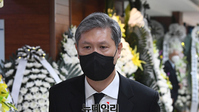
PETI 마비로 중단됐던 재산공개, 4개월 만에 재개 7~10월분 고위공직자 재산... 전자관보 통해 일괄 공개 이찬진 금융감독원장 384억원·김대진 한예종 前총장 342억원 이재명 정부 출범 이후 임명된 초대 참모·장차관 포함
인싸잇=백소영 기자 ㅣ 정부공직자윤리위원회가 4개월 만에 고위 공직자 수시 재산등록 사항을 공개한 가운데, 노태우 전 대통령 장남 노재헌 주중대사가 530억 4461만원을 신고해 이번 공개 대상 현직자 중 재산 1위에 올랐다. 정부공직자윤리위원회는 30일 ‘1월 고위 공직자 수시 재산등록 사항’을 전자관보에 게재했다. 공개 대상은 지난해 7월 2일부터 11월 1일까지 신규 임용 71명, 승진 80명, 퇴직 173명 등 신분 변동이 있는 고위공직자 362명이다. 노 대사는 본인 명의의 서울 종로구 구기동 단독주택(28억 원), 서대문구 연희동 건물(19억 7588만 원), 용산구 이태원동 주상복합건물(55억 원), 용산구 동빙고동 다세대주택 전세임차권(10억 2000만 원) 등 건물 132억 388만 원을 포함했다. 아울러 예금(126억 1858만 원), 증권(213억 2247만 원·상장주식 65억 1873만 원·비상장주식 47억 6718만 원·채권 34억 8339만 원 등), 대전 동구 토지(11억 625만 원), 보석류(롤렉스 시계 700만 원), 골동품·예술품(동양화 및 서양화 1억 3600만 원), 헬스 등 회원권(2억 4300만 원) 등을 신고했다.
-
“李 정부 부동산 정책, 잘못한다” 40%... 집값 상승 예상도 과반 근접
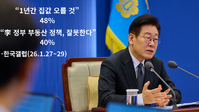
李 정부 부동산 정책에 “잘 못해” 40% “1년간 집값 상승” 48% 정부 ‘6만 가구’ 공급 발표 반응 반영 안 돼
인싸잇=이승훈 기자 | 이재명 정부의 부동산 정책에 대해 부정적으로 생각하는 국민이 10명 중 4명에 달한다는 여론 조사 결과가 30일 나왔다. 향후 집값이 더 오를 수 있다고 예상하는 국민도 절반에 가까웠다. 여론조사 전문기관 한국갤럽이 지난 27~29일 동안 이재명 정부의 부동산 정책에 대한 평가를 물은 결과, 26%가 ‘잘하고 있다’, 40%가 ‘잘못하고 있다’고 답했다. 향후 1년간 집값 전망을 물은 질문에는 절반에 달하는 48%가 ‘오를 것’이라고 답했다. ‘내릴 것’ 19%, ‘변화 없을 것’ 20%로 두 답변의 수치를 합해도 상승 예상보다 약 10%p를 밑돌았다. 한국갤럽은 “부동산 업계가 매우 강력하다고 평했던 규제를 시행한 지 6개월이 지났고, 최근 이 대통령이 몇 년간 유예된 다주택자 양도세 중과 부활을 거듭 천명했지만 소비자 관점에서는 상승론에 더 힘 실렸다”고 분석했다. 특히 부동산 가격 상승론에 힘이 실리면서 향후 1년간 전월세 등 주택 임대료에 대해서도 과반 이상인 58%가 ‘오를 것’으로 전망했다. ‘내릴 것’이란 전망은 10%, ‘변화 없을 것’이란 의견은 20%에 그쳤다. 이번 조사는 전국 만 18세 이상 1001을 대상으로 전
-
[여의도 인싸잇] 한동훈 제명에 국회 앞... 2030 “축하 케이크” vs 5060 “지도부 사퇴” 분열
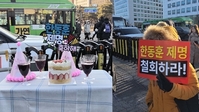
케이크 든 청년당원 “한동훈, 분열의 시발점… 떠나야 당이 다시 뭉쳐” 직격 제명 의결되자 청년 당원에게 욕설 쏟아낸 한동훈 지지자들 “정신차려”, “배신자는 죽어야 돼”… 현장 고성에 경찰 제재
인싸잇=백소영 기자 ㅣ 국민의힘이 한동훈 전 대표의 제명을 최종 확정하자, 국회 앞에서는 5060 고령층 지지자들과 2030 청년 당원들이 각각 찬반 집회를 열며, 현장이 세대별로 극명하게 갈렸다. 29일 오전 9시 국민의힘 최고위원회가 진행될 무렵, 국회 정문 앞 1번 출구 맞은편에서 한동훈 제명을 축하하는 국민의힘 청년 당원들의 축하모임과 한 전 대표를 제명 철회를 요구하는 집회가 동시에 열렸다. 2030 청년 국민의힘 당원들이 케이크와 포도 주스를 테이블에 세팅하며 “오늘을 기다렸다”며 축하의 준비를 서둘렀다.한쪽에서는 한동훈 전 대표의 지지자들이 당지도부와 국회 밖에서 한 전 대표의 제명 축하를 준비하는 청년들에게 고성과 욕설로 분노를 표출했다. 이날 한동훈 전 대표의 지지자들은 대부분 50~70대 중장년 및 고령층의 지지자로 구성되어 있었다. 한 남성 지지자는 집회 현장을 향하며 2030 청년들에게 “직업도 없는 자식들”, “취업도 못 한 XX들”, “인생 낙오자들, 취업이나 해 임마” 등의 발언을 쏟아내며 조롱하는 모습을 보였다. 현장의 긴장감이 고조되자 한때 경찰이 중재에 나서는 모습도 연출됐다. 2030 청년 당원들은 현장의 거센 분위기에도 불
법조
-
法 “‘10·15 부동산 대책’, 위법성 없어”... 개혁신당 제기 행정소송 기각
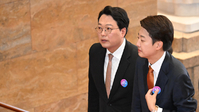
서울행정법원, 개혁신당 ‘조정대상지역 지정 취소 소송’ 기각 국토부, 10·15 부동산 대책 유지할 듯
인싸잇=이승훈 기자 | 천하람 개혁신당 원내대표 등이 정부의 ‘10·15 부동산 대책’의 위법성을 지적하며 이를 취소해달라는 행정소송을 제기했으나 법원이 받아들이지 않았다. 서울행정법원 행정14부(이상덕 부장판사)는 29일 개혁신당과 일부 주민이 국토교통부 장관을 상대로 제기한 조정대상지역 지정처분 무효확인 등 소송에서 원고 패소로 판결했다. 10·15 부동산 대책은 서울 전역과 경기도 12개 지역을 규제지역(조정대상지역·투기과열지구)으로 지정하는 동시에, 토지거래허가구역으로 묶는 것을 골자로 한다. 개혁신당은 10·15 부동산 대책에 대해 국토부가 규제 대상을 확대할 목적으로 지난해 9월 주택가격 통계를 의도적으로 반영하지 않아 위법하다고 주장해왔다. 개혁신당 측은 재판 과정에서 주택법상 직전 3개월간 주택 가격 상승률을 기준으로 조정대상)규제)지역을 선정해야 하는데, 대책 발표 직전 3개월(7~9월) 통계 가운데 9월 통계를 제외하고 나머지 통계만을 근거로 삼아 일부 지역까지 규제 대상에 포함시켰다고 주장했다. 만약 9월 통계까지 반영한다면 서울 도봉·금천·중랑구와 경기도 의왕, 성남 중원구, 수원 장안·팔달구 등 8곳이 부동산 대책 시행 이전까지 부동산
-
[법조 인싸잇] 뉴진스 사태가 던진 질문, ‘템퍼링’과 연예인 ‘전속계약’의 문제
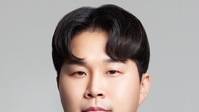
인싸잇=신홍명 변호사|최근 아이돌 그룹 뉴진스(NewJeans)를 둘러싼 소속사와 제작자 간 갈등이 사회적 이목을 집중시킨 바 있다. 하이브와 산하 레이블 어도어 그리고 민희진 전 대표 간 법적분쟁은 단순한 경영권 다툼을 넘어, 연예인 전속계약의 구조적 취약성과 법적 한계를 다시 한 번 수면 위로 끌어올렸다. 이는 앞서 발생한 피프티 피프티(FIFTY FIFTY) 사태와 맞물리며, 연예계 전반에 ‘전속계약은 과연 누구를 위한 장치인가’라는 근본적 질문을 던지고 있다. 뉴진스·피프티피프티 사태 그리고 반복되는 분쟁 구조 최근 연예계 전속계약 분쟁의 공통점은 명확하다. ▲ 데뷔 이전 혹은 초기 단계에서 체결된 장기 전속계약 ▲ 소속사의 전폭적인 투자와 관리 ▲ 이후 신뢰관계 붕괴를 계기로 한 계약 해지 또는 분쟁의 촉발이다. 뉴진스 사태는 아티스트 본인과 소속사 간 직접 분쟁이라기보다는, 제작자와 모회사 간의 갈등이 아티스트의 전속계약 구조 전반으로 확산한 사례다. 반면, 피프티피프티 사태는 전형적인 전속계약 해지 분쟁으로, 외부 세력의 개입 여부, 이른바 ‘템퍼링(Tempering)’ 문제가 핵심 쟁점으로 떠올랐다. 템퍼링, 왜 문제인가 템퍼링이란 전속계약 관
-
대법원, ‘채용비리 혐의’ 함영주 하나금융 회장에 무죄 취지 파기 환송
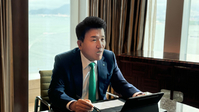
업무방해 혐의 무죄 취지로 파기 환송 남녀공용평등법 위반 혐의 유죄 확정... 벌금형에 회장직 유지 문제없어 ‘사법 리스크’ 벗은 함영주 회장, 잔여 임기 무사히 채울 듯
인싸잇=한민철 기자 ㅣ 하나은행 채용 비리 의혹으로 항소심에서 유죄를 선고받은 함영주 하나금융지주 회장에 대해 원심에서 유죄로 판단 업무방해 혐의를 대법원에서 무죄 취지로 파기 환송했다. 남녀고용평등법 위반 혐의에 대해서는 유죄가 확정됐지만, 벌금형에 그치며 함 회장은 잔여 임기를 안정적으로 마칠 수 있을 것으로 보인다. 29일 법조계에 따르면, 이날 오전 대법원 1부(주심 서경환 대법관)는 업무방해 및 남녀고용평등법 위반 혐의로 기소된 함 회장에 대해 징역 6개월에 집행유예 2년을 선고한 원심 일부를 파기하고 이 사건을 서울고법으로 돌려보냈다. 앞서 함 회장은 이 사건 1심 재판에서 무죄가 선고됐다. 하지만 항소심에서 업무방해 혐의를 유죄로 인정해 징역 6개월에 집행유예 2년과 벌금 300만 원을 선고했다. 함 회장은 지난 2015년과 2016년 하반기 신입사원 공개채용 전형인 서류전형과 합숙면접, 임원면접 등에 개입해 자신이 청탁을 받았던 복수의 지원자들을 알려주며 “잘 살펴보라”는 취지로 지시하는 등 위계로서 채용 업무를 방해했다(업무방해)는 혐의로 기소됐다. 또 지난 2015년과 2016년 하반기 신입직원 공개채용 계획을 시작할 무렵 “남자 직원을 많
국제
-
[금주의 국제 톡톡] 美-이스라엘-사우디, 이란 군사 대응 논의… 北, 탄도미사일 도발

인싸잇=백소영 기자 ㅣ 2026년 1월 마지막 주 국제사회는 미국 재무부의 환율관찰대상국 재지정부터 북한의 탄도미사일 도발, 일본의 동맹 결속 재강조 그리고 트럼프 행정부의 이란 군사 옵션 논의까지, 주요국의 강경 메시지와 군사적 움직임이 동북아와 중동의 긴장을 고조하는 이슈로 가득했다. 특히 각국의 전략적 셈법과 이해관계가 복잡하게 교차하는 가운데, 국제사회는 예고 없는 변수와 더불어 긴장과 불확실성이 증폭된 양상이다. 美 재무부, '환율관찰대상국' 지정… 한국 3회 연속 미국 재무부가 지난 29일 발표한 ‘주요 무역 파트너국 거시경제·환율 정책’ 보고서에서는 한국을 비롯한 중국·일본·대만·태국·싱가포르·베트남·독일·아일랜드·스위스 등 10개국을 환율관찰대상국 명단에 올렸다. 한국은 2023년 하반기에 한 차례 관찰대상국에서 빠졌지만, 2024년 11월 재지정된 이후 2025년 6월과 이번 발표까지 세 번 연속 관찰대상국 지위를 유지하게 됐다. 주된 사유는 대미 상품·서비스 무역흑자와 GDP 대비 경상수지 흑자 비율이다. 재무부는 이번 보고서에서 “2025년 6월까지 4개 분기 누적 기준으로 한국의 경상수지 흑자는 GDP의 5.9%에 달했고, 대미 무역흑자
-
日 자민당 총선 초반부터 ‘단독 과반’ 우위 행보… 다카이치 “방심 경계”

自, 초반 여론조사서 과반 진입 기류… 243석 확보 가능성 보수층 결집 흐름, 참정당 경합 지역서도 자민당 우세 다카이치 “과반 실패 시 즉각 퇴진”… 선거 막판 진영 결속 호소
인싸잇=백소영 기자 ㅣ 일본 중의원 선거 초반 판세가 자유민주당(이하 자민당)에 유리하게 전개되며 단독 과반 전망까지 나오는 가운데, 다카이치 사나에 총리는 “아직 초반”이라며 방심을 경계했다. 다음달 8일 치러질 일본 중의원 선거를 앞두고, 초반 판세는 집권 자민당이 단독 과반 의석을 확보할 것이라는 관측에 무게가 실리고 있다. 지난 선거와 달리, 이번 중의원 선거는 연립 여당 없이 자민당만으로 과반을 차지할 가능성이 거론되는 등 보수 지지층의 결집과 야권 분열이 주요 변수로 떠오르고 있다. 니혼게이자이(닛케이)신문은 지난 27~28일 전화·인터넷 방식으로 응답자 약 29만 6000명에게 실시한 여론조사와 자체 취재를 종합한 결과, 자민당이 전체 465석 중 과반인 233석을 넘어 243석을 확보할 가능성이 크다고 29일 보도했다. 닛케이는 “자민당이 전체 289개 선거구 가운데 약 40%에서 우세를 점했다”며 “이시바 시게루 전 정권 시절 이탈했던 보수층이 다시 자민당으로 돌아오는 조짐을 보인다”고 진단했다. 신문은 다카이치 사나에 총리의 70%대 높은 지지율이 이 같은 흐름을 뒷받침한다고도 분석했다. 현재 자민당의 중의원 의석은 198석(공시일 기준)으
-
트럼프 “그동안 매우 친절했다”... 美 관세율 추가 인상 시사

백악관 내각회의서 “관세, 지금보다 더 높을 수 있어” “다른 나라들 봐주는 상황”... 언제든 관세 인상 가능성 시사 EU-美 무역 합의, 유럽의회 승인 보류 등에 관세 압박 카드 내놓은 듯
인싸잇=윤승배 기자| 도널드 트럼프 미국 대통령은 자국이 세계에 부과하는 관세가 지금보다 “훨씬 더 높을(much steeper) 수 있다”고 경고했다. 29일(현지시간) 미국 언론매체 등에 따르면, 트럼프 대통령은 이날 백악관에서 주재한 내각회의에서 지난해 1월 2기 행정부 취임 이후 부과한 관세와 관련해 “그동안 사실 매우 친절했다”면서 관세율 인상 가능성을 내비쳤다. 트럼프 대통령은 이날 회의에 앞서 오전에 사회관계망서비스(SNS) 트루스소셜에 “자신이 다른 나라들을 봐주고 있다”며 외교 관계 및 국제 상황 변화에 따라 언제든지 관세를 올릴 수 있다는 취지의 글을 게재했다. 트럼프 대통령이 이날 관세율 추가 인상을 언급한 것은 최근 유럽의회가 미국의 그린란드 병합 요구와 관세 위협에 반발해 유럽연합(EU)과 미국 간의 무역 합의 승인을 보류한 것에 배경이 있다는 분석이 나온다. 또 트럼프 대통령이 한국의 대미 투자 합의 이행 속도가 자국의 기대에 못 미친 것도 이같이 압박성 발언을 내놓았다는 설명이다. 특히 연방대법원에서 트럼프 대통령이 국제비상경제권한법(IEEPA)을 근거로 독단적으로 부과해온 관세에 제동을 걸 수 있다는 점도 이번 발언에 영향을 끼쳤
-
트럼프 “韓 관세 25% 인상” 발언에 靑 ‘긴급 대처’… 국힘 “李·여당 책임”

트럼프, 트루스소셜 통해 한미관세 인상 발표 靑 “공식 통보 없어... 긴급 대책회의 소집” 강조 산업장관 美 급파… 대응책 마련 착수 국민의힘 “이재명·여당, 비준 책임 외면이 사태 불러” 직격
인싸잇=백소영 기자 ㅣ 도널드 트럼프 미국 대통령이 한국 국회의 한미 무역합의 입법 지연을 이유로 관세를 25%로 인상한다고 전격 발표했다. 이에 정부는 “공식 통보는 없었다”며 긴급 대책회의에 돌입했고, 국민의힘은 이번 일의 책임을 이재명 정부와 여당에 돌리며 비판하고 있다. 트럼프 대통령은 지난 26일(현지시각) 자신의 소셜미디어 트루스소셜에 “한국 국회가 미국과의 무역 협정을 제대로 이행하지 않고 있다”며 “이재명 대통령과 2025년 7월 30일 체결한 무역협정이 아직 국회에서 승인되지 않았다”고 공개 비판했다. 이어 “협정 미이행을 이유로 자동차, 목재, 의약품 등 모든 상호관세를 15%에서 25%로 인상한다”고 밝혔다. ‘한밤중에 날벼락’과도 같은 발언에 정부는 당혹감을 감추지 못하는 모양새다. 트럼프 대통령이 우리 정부에 해당 발표에 관한 어떤 논의나 사전 통보가 없었다는 입장이다. 청와대 관계자는 “미국 정부로부터 공식적인 통보나 세부 내용에 대한 설명은 아직 없는 상황”이라고 언론에 밝혔고, 이날 오전 김용범 정책실장 주재로 관계부처 긴급 대책회의를 소집한 것으로 나타났다. 정부는 김정관 산업통상자원부 장관을 미국으로 긴급 파견해 현지에서 하워
-
美 타임지 “이란 반정부 시위 사망자, 3만 명 넘을 듯”

당국 발표 10배 이상, 사망자 수치 논란 시신 운반용 18톤 트레일러 동원... 구급차도 부족 이란 전국 4000곳 시위 동시다발 발생…“피해 집계조차 불가”
인싸잇=유승진 기자 ㅣ 이란에서 대규모 반정부 시위가 벌어지는 가운데, 당국이 전국적인 인터넷 차단에 나선지 48시간 동안 보안군이 반정부 시위대를 학살해 사망자가 3만 명을 넘을 수 있다는 내부 고위 인사의 증언이 나왔다. 미국 <타임지>는 25일(현지시간) 이란 보건부 고위 관계자 2명을 인용해 “8~9일 이틀간 3만 명 이상이 숨졌을 가능성이 있다”고 보도했다. 이는 이란 참전용사·순교자 재단이 공식 발표한 시위 사망자 3117명, 군경 등 보안 대원·무고한 시민 2427명, 테러리스트·폭도 690명을 크게 상회하는 수치다. 미국 인권단체도 사망자 5459명을 집계하고 있으며, 1만 7031명에 대해서는 추가 조사가 진행 중이라고 밝혔다. 현지 의료계의 집계도 정부 공식 통계와 비슷한 규모를 가리킨다. 현지 병원이 비밀리에 집계한 사망자 수는 23일 기준 3만 304명으로 확인됐다. 보고서를 작성한 독일계 이란인 안과 의사 아미르 파라스타 박사는 “이 숫자에는 군 병원이나 조사조차 이뤄지지 못한 지역의 사망자는 포함되지 않았다”고 밝혔다. 이번 시위는 이란 국가안전보장회의 집계 기준 전국 4000여 곳에서 동시다발로 벌어졌다. 파라스타 박사는
-
그린란드 리스크에 국제 金·銀 가격, 또 최고치 경신

인싸잇=유승진 기자 | 그린란드 등을 둘러싼 국제 사회의 지정학적 갈등이 계속되면서, 국제 은(銀) 가격이 장중 사상 처음으로 온스당 100달러선을 넘어섰다. 또 안전자산 선호도 상승과 미국 정부의 그린란드 관련 행보가 유럽 주요 국가를 자극하면서 ‘셀 아메리카(미국 자산 매도)’에 따른 금값 폭등으로 이러지고 있다. 24일 로이터통신 등에 따르면, 은 현물 가격은 미국 동부시간 기준 23일 오후 1시경 전장보다 5% 오른 온스당 100.94달러에 거래됐다. 은 가격이 온스당 100달러선을 넘어선 것은 이번이 처음인 것으로 전해졌다. 국제 은값은 지난 한 해 150% 넘게 폭등한 데, 이어 새해 들어서도 이날까지 40% 넘게 올랐다. 동시에 국제 금 가격도 상승세를 지속하고 있다. 금 현물 가격은 이날 장중 온스당 4988.17달러로 고점을 높이면서, 사상 최초로 온스당 5000달러선 돌파를 목전에 두고 있다. 뉴욕상품거래소에서 2월 인도분 금 선물 종가는 온스당 4979.7달러로 전장보다 1.4% 올랐다. 금 가격은 지난 2024년 27%, 2025년 65% 급등했다. 새해 들어서도 랠리를 이어가고 있는 것이다. 이에 국내 금 거래 가격도 순금 1돈(3.7

![[문화 인싸잇] 영화가 무대로 변하는 순간... 日 뮤지컬 <센과 치히로의 행방불명>](http://www.mediawatch.kr/data/cache/public/photos/20260105/art_17698236846147_ba5751_740x417_c0.jpg)
![[금주의 금융 톡톡] 하나금융그룹, ‘4조 클럽’ 입성에 함영주 회장 사법리스크 해소까지](http://www.mediawatch.kr/data/cache/public/photos/20260105/art_17697718033006_7e574c_740x417_c0.jpg)
![[금주의 국제 톡톡] 美-이스라엘-사우디, 이란 군사 대응 논의… 北, 탄도미사일 도발](http://www.mediawatch.kr/data/cache/public/photos/20260105/art_17697563493506_fcd625_740x417_c0.png)
![[단독] 삼성전자, 납품 자재 관리자에 27억 털려](http://www.mediawatch.kr/data/cache/public/photos/20260105/art_17697591773947_6c747f_740x417_c0.jpg)

![[금주의 화장품·패션 톡톡] 한국콜마, 기술 탈취 소송 승소... LG생건, 화장품 부문 부진에 영업이익 급감](http://www.mediawatch.kr/data/cache/public/photos/20260105/art_17697502149262_c79dc6_740x417_c0.jpg)

![[미디어 이슈] 슈카월드 코스피 5000 발언... 미디어의 ‘조롱 프레임’ 논란](http://www.mediawatch.kr/data/cache/public/photos/20260105/art_1769688322329_603b17_740x417_c0.jpg)

![[금주의 제약·바이오 톡톡] 한미약품 비만신약, 글로벌 시장 공략... 동국제약 ‘센텔리안24’ 위조품에 소비자 주의보](http://www.mediawatch.kr/data/cache/public/photos/20260105/art_176973828883_e4d429_740x417_c0.jpg)





























 1
1
 2
2
 3
3
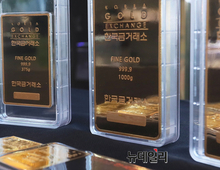 4
4
 5
5
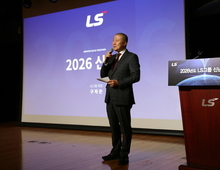 6
6









